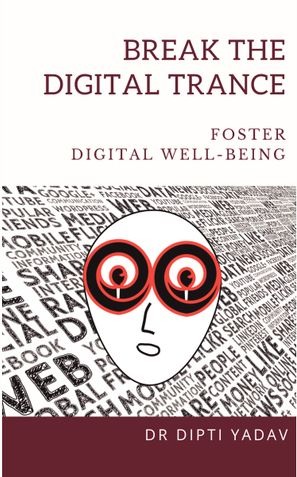The devices ranging from smartphones to laptops, tablets, and television sets are always there to draw our attention. The fact is that technology has greatly facilitated our lives, but excessive screen time can be bad for your mental health and wellbeing. It is necessary to have a grasp of the significance of having screen time managed properly and to apply screen time management strategies to maintain good balance.
The Allure of Screens
Screens get us addicted to their bright displays, engaging content, and convenient connectivity. Social media, streaming platforms, and online gaming can be addictive; therefore, it is easy to spend more time in front of the screen and develop unhealthy habits. The charm of screens, in the beginning, cannot be denied, but the nonstop overdose is a cause of damage to our mental well-being.
Disrupted Sleep Patterns
Too much screen time, especially before going to bed, can result in our rhythm being disturbed. A blue light that comes from screens is such a factor that reduces the secretion of melatonin, which is a hormone that regulates our sleep and wake cycles. These disruptions can trigger insomnia, low sleep quality, and tiredness that, in turn, may have negative effects on our mental health.
Social Isolation and Loneliness
Whereas screens are mostly about virtual relations, they can also be a source of social isolation and loneliness. Spending too much time in front of the screen may substitute for real-life interactions, and this may cause loneliness and loss of the support systems that are so important to mental health.
- First of all, pay a priority to live and spend time with friends and family.
- Engage in social events or join a club to create face-to-face connections.
- Maintain screen time limits and leave some room for desirable social interactions.
Social relations are essential for mental health, and it is important to maintain a good balance between virtual and real-life encounters.
Cyberbullying and Online Harassment
The online world creates an environment that encourages cyberbullying, harassment and online shaming. The fact that children face numerous negative experiences can be of very serious consequence to their mental health, and they may end up developing depression, stress, and low self-esteem.
- Practise digital manners and be kind to online platforms.
- Report cases of cyberbullying or harassment to the authorities.
- Look for support from trusted persons or professionals if you or any other person is a victim of online abuse.
A healthy, harmless, and respectful online environment is needed in the interest of mental health.
Comparison and Unrealistic Expectations
Social media networks usually offer a distorted and edited version of reality, which justifies the expectations of unrealism and the tendency to compare oneself with others. This might result in a situation where the person starts feeling less confident, dissatisfied, and inadequate, leading to mental health problems.
Addiction and Compulsive Behaviours
The more hours we spend in front of screens, the more likely we are to become addicted and display compulsive behaviours, including checking for messages, scrolling through social media, and watching series in bulk. These activities could be very addictive, and hence, they may really get in the way of daily activities, productivity and general well-being.
- Set a limit on screen time and define its boundaries.
- Make mindfulness your practice and find yourself in the moment.
- Take part in activities that will keep you mentally sharp and relaxed.
It is important to discover and deal with addictive screen time habits in order to respect the balance.
The Significance of Digital Detox
Digital detoxing should be a routine practice that is done regularly, and it could prove to be beneficial for mental health. A digital detox for an established timeframe is capable of alleviating stress, enhancing concentration, and improving your overall feeling.
- Schedule the non-screen activities or the outdoor events.
- Get involved in things you enjoy that don’t require screens.
- Use mindfulness practices, like meditation and yoga, to develop mental clarity.
Digital detoxes give a crucial breather from the perpetual screen stimulation, which in turn results in refreshing the mind and better focus.
Striking a Balanced Approach
Screen time management is not cutting off the screens per se but rather about finding a balanced way that can promote mental wellbeing. Through setting healthy boundaries, focusing on in-person relationships, and having regular digital detoxes, we can make the most of the benefits of technology while avoiding its negative effects on our mental health.
If you’re seeking guidance on breaking free from the digital trance, consider exploring the book https://store.pothi.com/book/ebook-dr-dipti-yadav-break-digital-trance/ – a comprehensive resource that empowers you to reclaim control over your digital life and prioritise your mental health.
Dr. Dipti Yadav is a licensed psychologist specializing in paediatric behavioural health and childhood emotional disorders.
About Author:
The author is a mental health counsellor and a writer who is committed to increasing the awareness of the influence of technology on the health of the mind. Being a psychologist helps her to design such practical approaches that her readers can use to achieve a balanced digital life through her insightful articles and blog.


